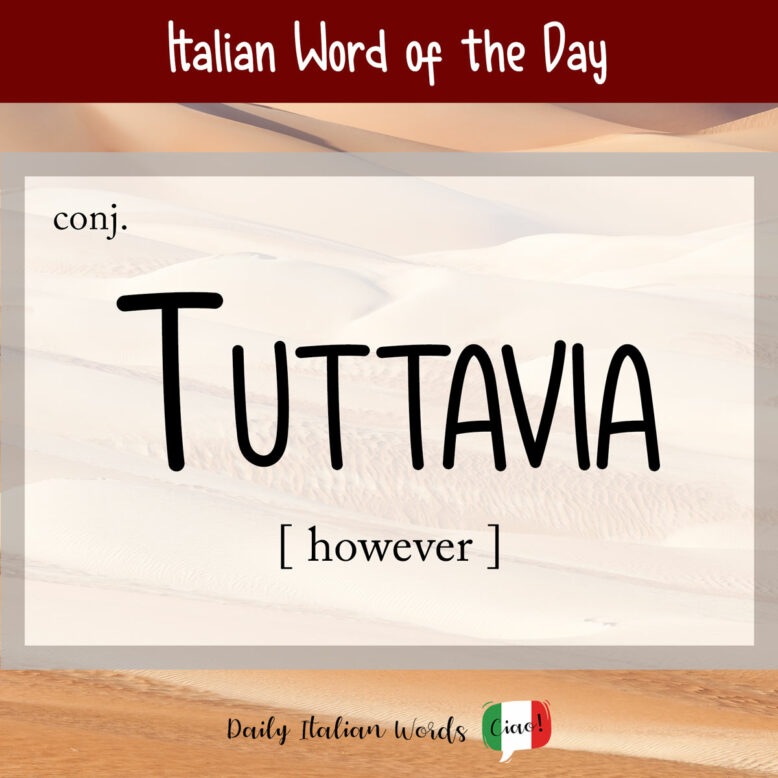Tuttavia is a common Italian conjunction composed of the words tutta (the feminine form of tutto meaning everything) and via (path / way). Being fairly formal, it is used far more in writing than in speech.
Learn with our video

There is a range of possible translations for this word in English including however, yet, but, nonetheless, still, and despite. Whichever translation you choose, the important thing to remember is that the purpose of tuttavia is to connect two statements that contrast with or contradict each other. For example:
Non ha studiato la materia, tuttavia ha deciso di sostenere l’esame.
He did not study the subject, yet he decided to take the exam.
Hai combinato un bel casino, tuttavia sono disposto a darti un’altra possibilità.
You really messed up. However I’m willing to give you another chance.

It is often thought that a sentence cannot start with a conjunction such as tuttavia but in modern usage, this rule is not widely accepted. In fact, even A Reference Grammar of Modern Italian cites an example with tuttavia introducing the sentence:
- Pisa è nota nel mondo per la Piazza dei Miracoli. Tuttavia ci sono tante altre cose interessanti da vedere… = Pisa is famous for Piazza dei Miracoli. However, there are so many other interesting things to see… (page 416)
To intensify to your statement, you can use the expression pur tuttavia (or more rarely the single word purtuttavia) where pur acts as a reinforcer. For example:
Non lavorava mai, pur tuttavia fu promosso a capoufficio.
He never worked, yet he was promoted to office manager.
Some possible synonyms for tuttavia in Italian include:
- però (but)
- ma (but)
- ciò nonostante (nevertheless)
- nondimeno (nevertheless)
- comunque (in any case)
- pure (yet, although)
- eppure (yet, still)
- malgrado ciò (despite)
In old Italian, tuttavia used to mean still or continuously as seen in the first line of the poem Canzona di Bacco written by Lorenzo de’ Medici in 1490:
Quant’è bella giovinezza
che si fugge tuttavia!
Chi vuole esser lieto, sia,
di doman non c’è certezza.
How lovely is youth
Which continually slips away
Be happy while you can
For tomorrow brings no certainty.
In literature, you may encounter the archaic expression tuttavia che which is synonymous with the expression ogni volta che (every time that).
This article is also available in video format on our YouTube channel. The audio version can be found on Podbean, Google Podcast, Apple Podcast and Spotify.
Heather Broster is a graduate with honours in linguistics from the University of Western Ontario. She is an aspiring polyglot, proficient in English and Italian, as well as Japanese, Welsh, and French to varying degrees of fluency. Originally from Toronto, Heather has resided in various countries, notably Italy for a period of six years. Her primary focus lies in the fields of language acquisition, education, and bilingual instruction.


